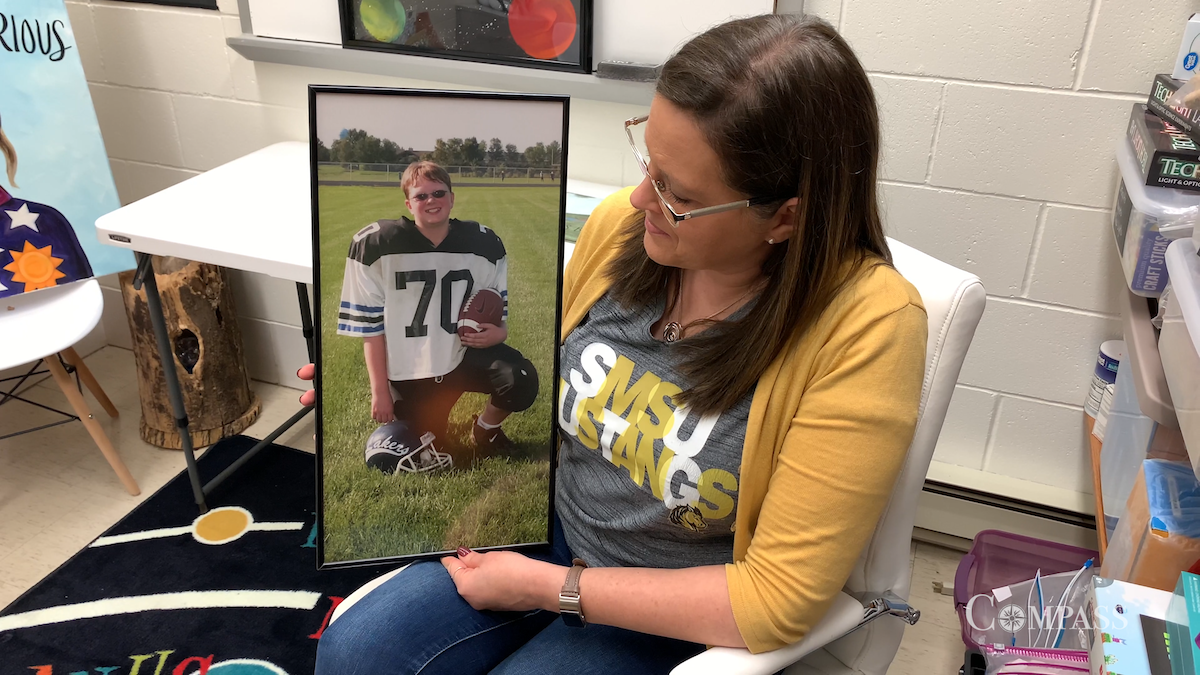While Dr. Kandy was waiting for her kids at the bus stop, a number of emergency vehicles drove by, sirens activated. "We figured something happened that held up the bus," Dr. Kandy remembered. "I thought to call a friend of mine who was a bus driver at the time and her words were the first moment that we realized that it was our children's school bus and that our kids were involved."
There had been a crash.
At some point during the evening, an EMT the responded to the bus crash let Dr. Kandy know that one of her sons was in the hospital in Granite Falls. He had broken his leg in the crash. "At the time I didn't really think, I mean, broken legs are bad and I wanted to be with my son but I still didn't know where my son Reed was.
People started making phone calls. "Eventually my pastor had to tell me that it was my son who had been flown out and he didn't make it." Her son Reed was killed in the crash.
"I have learned that just about everything in life is a lesson to be learnt and that was similar to grieving, so the reason behind writing books for me has somewhat been transformative. In the case of my first book, "The Redbird Sings the Song of Hope," that book was sort of a process for me to be able to speak out loud my grief and to write it in a way that made sense to me, ... that I was carrying this heavy load of grief but yet there were still bright things in that," she said.
She said that during her grieving process she became a better educator and "there has been an offshoot that I never expected or would have planned to happen. And that really wonderful gift that I have been given is that, in the building of relationships with students, in some cases they've somewhat adopted me as a second mom," she said smiling. "And in many ways I lost one son but I gained about nine more."
Josh Brusven graduated from SMSU in 2010. He met Dr. Stevens in seventh or eighth grade when she was the new science teacher at Lakeview. Brusven had her as a teacher all through high school. "Then I started at SMSU and she helped me a little bit through chemistry and would ... do a little study session with her," Brusven said. "After that, we are basically an adopted family. My six-year-old and four-year-old call her granny. We aren't related by blood, but we have that relationship there."
SMSU freshman Jennifer Aguilar had Dr. Kandy for her first semester at college. "She was really the only professor that I felt very comfortable with," Aguilar said. "She was very relatable and she talked to us like we were her own children and I really liked that about her because she made me feel very welcoming to her class and I feel like every freshman, especially during this time during the pandemics really need something like that."
SMSU does have counseling services, but Aguilar said that not many students know about them. "I feel like it needs to be talked about more. Other students are struggling with distant learning. I feel like they should know that they're not alone because I am one of them," she said. "There are people like Mrs. Kandy out there that do want to help those who need it."
"This is kind of a crossover between my role as a professor and my education in grief that I wasn't expecting to get, but I've learned something from my students," Dr. Kandy said. "This was probably one of the most powerful things that I have learned during this pandemic: When students are in high school, they're often told ... that, 'You need to start working on your work' or 'You need to start caring about your work, because when you get to college, you're on your own." And while that is true to some degree, what students hear is that you are completely isolated and you can't do this with help. And nothing could be farther from the truth. We have support services to help students through but we also have academic services, we have health services, we have all kinds of things. So the message in life and for education is that we aren't doing this independently, we are doing this interdependently. And that it is okay to allow someone else to help you."



